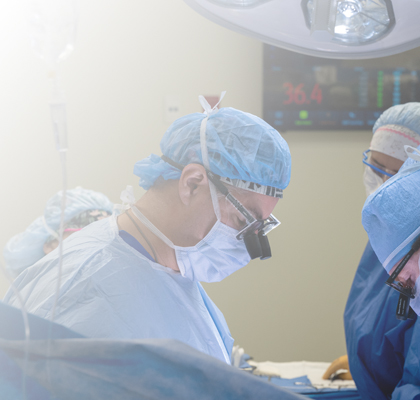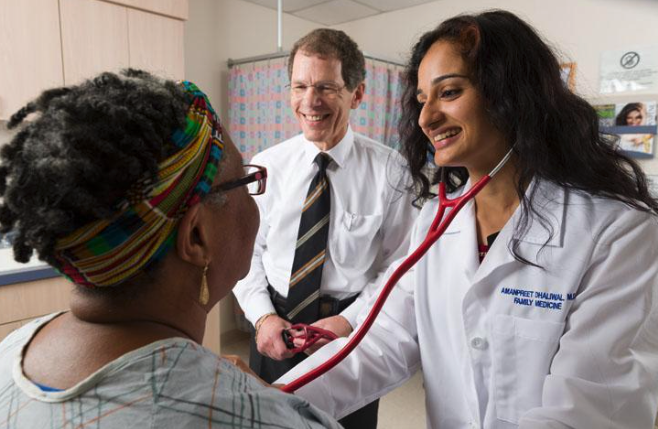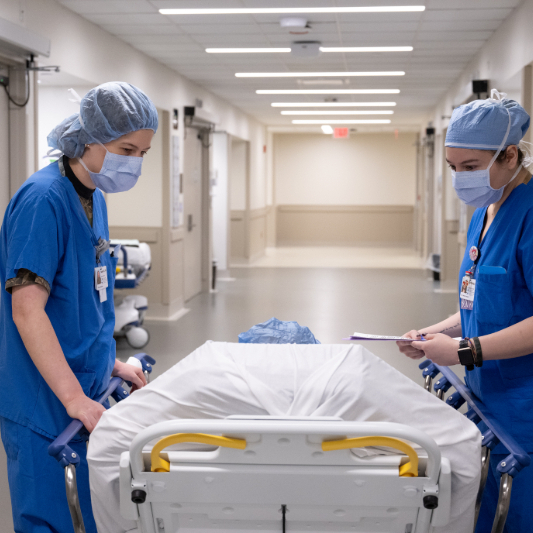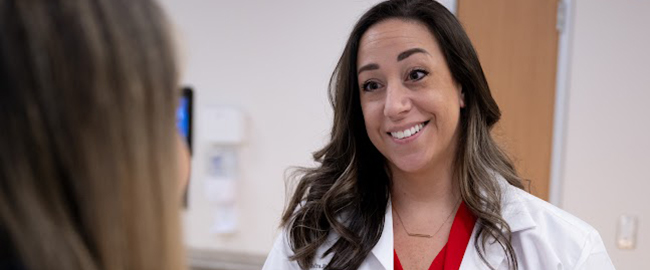

Pancreas Transplant in New Jersey
Hackensack Meridian Health provides expert pancreas transplant care across New Jersey, helping patients with diabetes live longer, healthier lives. As one of only a few certified pancreas transplant programs in the state and New Jersey’s #1 ranked health network by U.S. News & World Report, we deliver advanced surgical care, leading outcomes, and compassionate support for every patient.
Restoring Health and Freedom From Diabetes
As one of only a few certified transplant centers in New Jersey to perform pancreas transplant procedures, Hackensack University Medical Center's Pancreas Transplant Program helps people who have diabetes to live longer, healthier lives. Although most pancreas transplant candidates have Type 1 diabetes, that cannot be managed well using medications and is causing serious complications, some people with uncontrolled Type 2 diabetes may also need a pancreas transplant.
Our transplant options include:
- Simultaneous pancreas and kidney transplant (SPK)
- Pancreas after kidney transplant (PAK)
- Pancreas alone transplant (PAT)
Simultaneous Pancreas-Kidney Transplant
People who have diabetes are at a higher risk of experiencing kidney damage that could eventually lead to kidney failure, also called end-stage kidney disease. To address the needs of patients with diabetes who are experiencing kidney failure, we offer pancreas-kidney transplant options in addition to a pancreas-only transplant. Learn more about our kidney transplant program.
Pancreas Transplant Supportive Services
We offer a full range of supportive services for pancreas transplant candidates both before and after surgery including:
- Mental health care
- Financial counseling
- Disease management services provided before your surgery
- Post-surgical and follow-up care
- Education to teach you how to monitor your condition, administer anti-rejection medications and safely return to everyday activities
Learn more about the support groups we offer.
Surgical and Post-Surgical Pancreas Transplant Care
During surgery, your own pancreas will be left inside your body to help with digestion. Your surgeon will connect the donor pancreas and make sure it has a good blood supply. If you are also having a kidney transplant, your surgeon will connect the donor kidney. While a pancreas transplant is functioning, it will cure you of diabetes and you will no longer need to take insulin. Your new pancreas will make insulin for you.
Sometimes a pancreas transplant may even reverse the negative effects that diabetes has already had on your body. A pancreas transplant will also prevent further damage or complications caused by very low or very high blood sugar, and you will be at a lower risk for kidney damage. If you also had a successful kidney transplant, you will no longer need dialysis or other kidney disease treatments.
Pancreas Transplant Expertise
Find a pancreas transplant expert or learn more about our Living Donor Program.
Why Choose Hackensack Meridian Health?
- Certified Pancreas Transplant Program: One of few in New Jersey approved to perform these complex procedures
- Nationally Recognized Outcomes: Survival rates above national benchmarks
- Expert Surgeons: Led by Dr. Michael J. Goldstein, MD, and a multidisciplinary transplant team
- Innovation: Robotic surgery and LifePort Kidney Transporter technology for optimal organ preservation
- Integrated Care: Seamless coordination with endocrinology, nephrology, and nutrition experts
Find An Organ Transplant Specialist
Organ Transplant Living Donor Program

Receiving An Organ Transplant

Thinking About Becoming an Organ Donor?

An Organ Transplant Program That's Changing Lives


